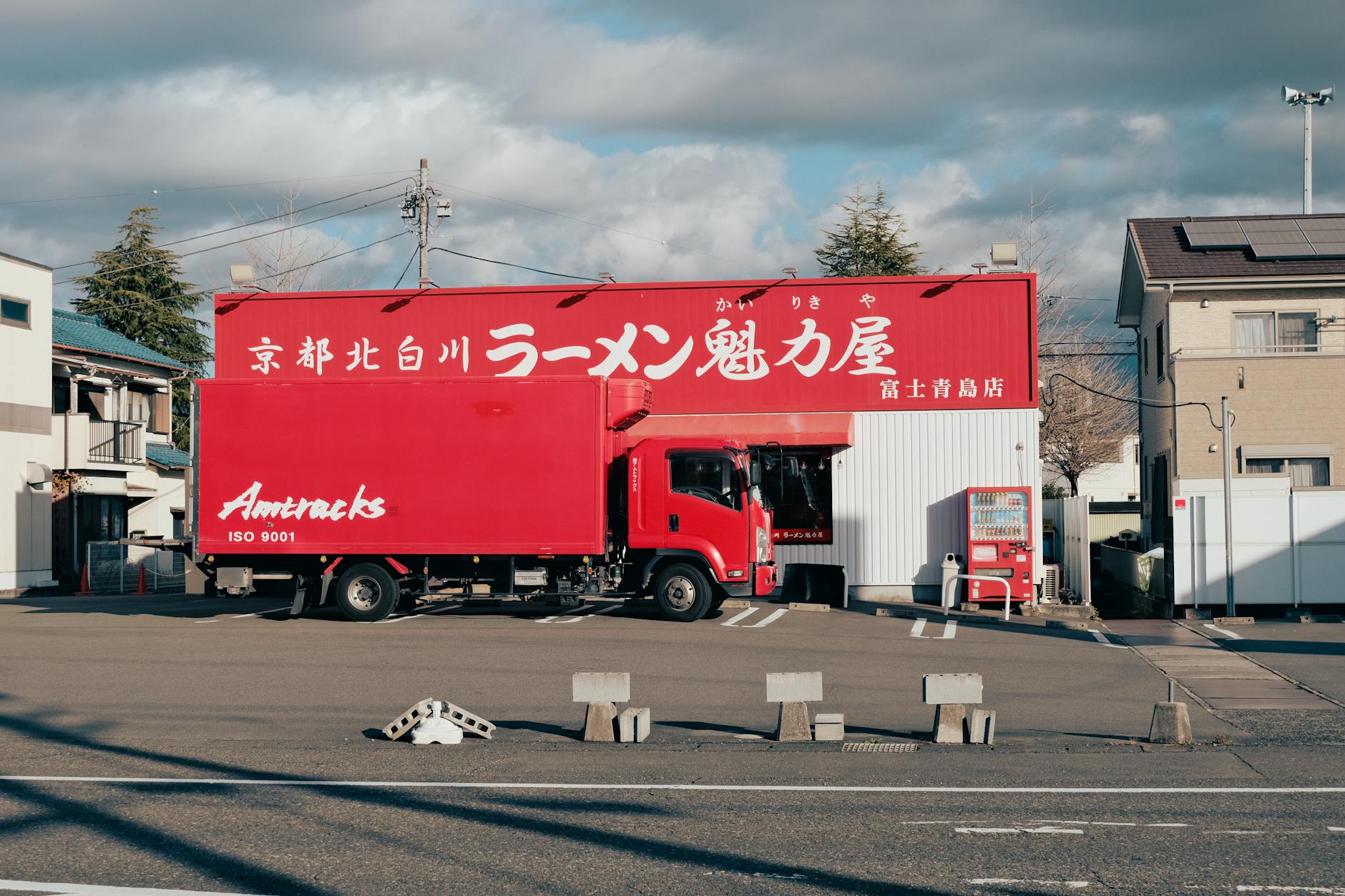How to Master Ecommerce Logistics in Australia

Planning Your Logistics Strategy
As an e-commerce consultant immersed in the logistics landscape of Melbourne, I've observed the strategic importance of planning a robust logistics approach. Especially when I look at thriving ecommerce hubs like the Melbourne CBD, it's evident that a well-crafted strategy is essential for businesses to flourish. The foundation of a strong logistics strategy is understanding your small business’s unique needs. You see, the journey begins with delving into the very fabric of your business operations to determine aspects like the scale of your pick and pack processes. This step is crucial because it directly impacts your efficiency and customer satisfaction.
Next, mapping customer expectations becomes your guiding compass. By aligning your logistics operations with what your customers anticipate, you're ensuring satisfaction, which can lead to repeat business. Knowing whether your customers prefer flexibility in delivery times or require detailed tracking updates can refine how your logistics strategies are implemented. Lastly, setting clear objectives allows for targeted approaches to your e-commerce operations. Having defined goals - be it reducing delivery times or minimising costs - helps you align your resources efficiently and effectively.
Ultimately, a comprehensive logistics strategy is indispensable, especially in Melbourne's bustling e-commerce scene. Implementing these high-level insights can make a significant impact on your business operations, allowing you to remain competitive and strategically minded.
Choosing the Right Tools
Navigating the intricate world of ecommerce logistics requires the right blend of tools and insights. One critical aspect for small business owners, especially in bustling hubs like Melbourne CBD, is optimising pick packing efficiency. It’s not just about getting products out the door quickly; effectiveness in this area can greatly impact your bottom line. Make sure you consider implementing advanced software solutions specifically tailored to streamline this process. These tools can automate repetitive tasks, reduce errors, and speed up order handling.
Software Solutions for Efficiency
Investing in robust software solutions cannot be overstated. Platforms that integrate seamlessly with your e-commerce systems save valuable time by consolidating data and managing stock seamlessly. This helps reduce mis-picks and delays in fulfilling orders. Exploring productivity software at events, such as business meetups at Federation Square, allows you to keep a pulse on what's trending and tailor solutions to your specific business needs.
Automation Technologies
Automation technology is pivotal in modern logistics. By incorporating automated systems within pick-packing operations, small businesses can efficiently handle large volumes of orders with precision. This can include automation in sorting and packaging, leading to improved productivity and reduced labour costs.
Data Analytics for Decision Making
Data analytics plays a crucial role in decision-making. Using analytics, you can track performance metrics, optimise your supply chain, and predict trends that improve operational efficiency. Diving into these insights can result in key strategic advantages, helping businesses foresee demand and improve customer satisfaction. Incorporate systems that offer comprehensive data analysis capabilities to stay ahead of the curve.
Managing Inventory Effectively
Real-Time Inventory Tracking
Implementing real-time inventory tracking is crucial for small e-commerce businesses aiming to stay competitive. By maintaining a constant overview of your stock levels, you can ensure that your customers will always find what they’re looking for. Consider leveraging e-commerce hubs in Melbourne CBD for efficient fulfilment processes, as these provide excellent logistical support tailored for small businesses. Utilising advanced software that enables accurate inventory tracking will help you focus on growth while reducing errors.
Forecasting Demand Accurately
Accurate demand forecasting is a critical component of successful inventory management. Understanding seasonal trends and consumer behaviour will allow you to anticipate future demand, thus preventing both overstocking and stockouts. Pairing this insight with data from business meetups at Federation Square can offer valuable market perspectives. Engaging with other professionals will provide a broader understanding of emerging trends that can refine your demand predictions.
Reducing Stockouts and Overstock
The optimal strategy for managing inventory involves finding a balance between stockouts and overstock. This is often achieved through collaboration with a reliable 3PL that can handle sudden changes in inventory levels. With logistics workshops at Docklands often focusing on strategic partnerships, tapping into these resources can provide you with ideas for an optimised supply chain. Efficient inventory management not only reduces waste but also aligns with the sustainability goals increasingly valued by today's consumers.
Enhancing Delivery Operations
Last-Mile Delivery Innovations
Last-mile delivery remains a critical component of ecommerce logistics in Melbourne, especially when catering to small business needs. Innovations such as real-time tracking systems and autonomous delivery options are dramatically transforming how products reach customers. Many local businesses near the vibrant streets of the CBD are exploring drone deliveries for small parcels, enhancing the speed and efficiency of their operations. These advancements not only provide competitive delivery times but also improve customer satisfaction through reliable and prompt service.
Partnering with Reliable Carriers
Building strong partnerships with trustworthy carriers is essential for maintaining smooth business operations. With options like Toll Group and StarTrack readily available in Melbourne, businesses can ensure dependable delivery services to their customers. These partnerships can also offer customised logistics solutions that align with your business needs. Consider setting clear agreements and KPIs to ensure that all parties are on the same page, which is something often discussed at logistics workshops around Docklands.
Implementing Sustainable Practices
Sustainability is becoming increasingly important to consumers, making it a strategic focus for many businesses. Adopting eco-friendly delivery practices, such as using electric vehicles and optimising delivery routes, can significantly reduce carbon footprints. Additionally, promoting sustainable packaging options can resonate well with eco-conscious customers. Integrating these practices can feel overwhelming for small businesses, but starting with small steps can make a substantial difference over time. Implementing these strategies not only aligns with contemporary consumer values but also propels businesses forward in a competitive market.
Strategic Solutions for Overcoming Logistics Challenges
Navigating Regulatory Requirements
Navigating the regulatory landscape is akin to mastering a complex chess game. For any e-commerce business operating out of Melbourne, staying compliant with local laws and avoiding unexpected fines is paramount. To steer clear of these pitfalls, invest in legal consultations and attend logistics workshops at Docklands, where up-to-date changes in regulations are frequently discussed. These sessions will arm you with knowledge on customs regulations and trade compliance, ensuring your supply chain management is both effective and lawful.
Adapting to Seasonal Fluctuations
Every season unfolds new demands, challenging your inventory and delivery operations. Understanding these fluctuations is crucial for maintaining customer satisfaction and maximising profits. Channel insights from data analytics tools to predict demand shifts and oversee dynamic pricing strategies. Small business owners in Melbourne can gain from networking at Federation Square meetups. Here, exchanging sector-specific strategies can fortify your adaptive mechanisms, allowing you to better match your supply with fluctuating demand. Addressing variability with agility ensures your operations are seamless year-round.
Leveraging Feedback for Improvement
Feedback serves as a catalyst for continuous improvement. Embrace customer and team feedback using channels like surveys or face-to-face interactions, which can be particularly effective among the community of e-commerce businesses in the Melbourne CBD. Utilising this feedback to refine processes within your logistics and fulfilment centres can drive efficiency and customer satisfaction. Incorporating advanced analytics, turn qualitative insights into quantitative results, thereby enhancing your brand's reputation and customer loyalty in Melbourne’s competitive market.


